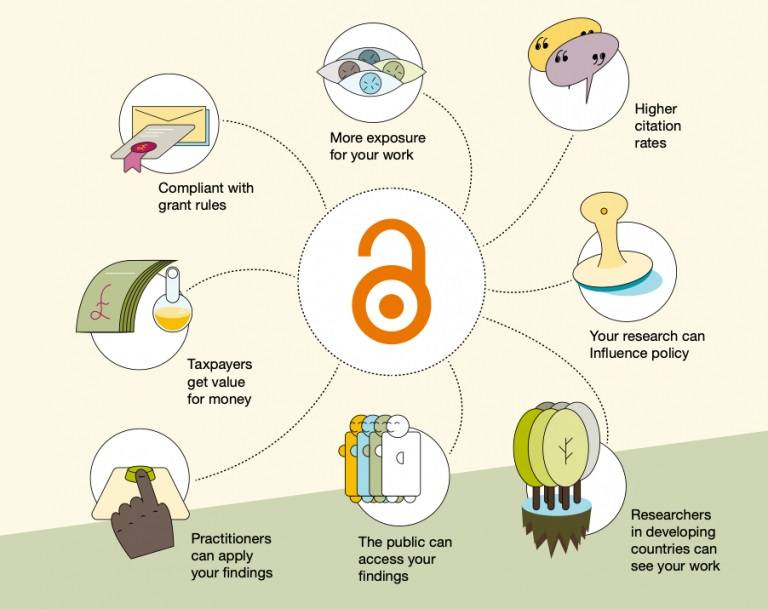Open access means making research publications freely available online. It ensures that your work reaches the widest possible audience, and that it can be used and shared easily.
What is open access?
The goal of open access is to make this material openly available online without restriction to all readers, free from the barriers imposed by subscription access. Open access is now required by many research funders and for the post-2021 REF. UCL's Open Access Team supports authors with both types of open access: Green and Gold.
Green open access
Green open access (or self-archiving) means making research freely available through an open access repository, usually after an embargo (6-36 months). The version permitted is often the final accepted manuscript, and the publisher may require an embargo period. At UCL, the Green route is fulfilled by uploading research outputs in RPS. The Open Access Team checks all uploads and apply the necessary conditions before making them publicly available in our open access repository, UCL Discovery.
Most traditional subscription journals permit Green open access, at no cost to the author. Some book publishers also permit Green open access, such as:
- Bloomsbury
- Brill (multi-authored books and encyclopedias)
- Cambridge University Press
- Emerald
- Hart
- Oxford University Press
- Routledge/Taylor & Francis
- Sage
- Springer
If your publisher does not allow open access as standard, you can ask them to amend the contract to include it.
Gold open access
Gold open access means making research freely available and reusable on the publisher's website, immediately on publication. This means either publishing with a fully open access publisher (e.g. PLOS, UCL Press), usually for a fee, or paying to make research open access with a subscription journal/traditional book publisher. UCL's Open Access Team can advise you on whether Gold funds are available for your publication, and arrange for payment to be made.
Benefits of open access
In addition to institutional and funder mandates, making your research open access has many wider benefits:
- Compliant with grant rules.
- More exposure for your work.
- Higher citation rates.
- Your research can influence policy.
- Researchers in developing countries can see your work.
- The public can access your findings.
- Practitioners can apply your findings.
- Taxpayers get value for money.

Diagram explaining the benefits of making research open access. Adapted from an original graphic under CC BY by Danny Kingsley and Sarah Brown.
 Close
Close

